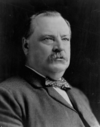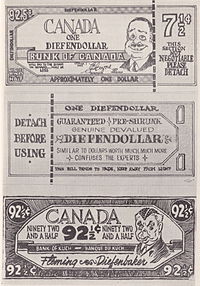
Back Portail:Conservatisme French Portal:Konservatisme NB Portal:Conservadorismo Portuguese Portal:Konservatism Swedish
| Main page | Showcase | Project |
Introduction
Conservatism is a cultural, social, and political philosophy and ideology, which seeks to promote and preserve traditional institutions, customs, and values. The central tenets of conservatism may vary in relation to the culture and civilization in which it appears. In Western culture, depending on the particular nation, conservatives seek to promote a range of institutions, such as the nuclear family, organized religion, the military, the nation-state, property rights, rule of law, aristocracy, and monarchy. Conservatives tend to favour institutions and practices that enhance social order and historical continuity.
Edmund Burke, an 18th-century Anglo-Irish statesman who opposed the French Revolution but supported the American Revolution, is credited as one of the forefathers of conservative thought in the 1790s along with Savoyard statesman Joseph de Maistre. The first established use of the term in a political context originated in 1818 with François-René de Chateaubriand during the period of Bourbon Restoration that sought to roll back the policies of the French Revolution and establish social order.
Conservatism has varied considerably as it has adapted itself to existing traditions and national cultures. Thus, conservatives from different parts of the world, each upholding their respective traditions, may disagree on a wide range of issues. Historically associated with right-wing politics, the term has been used to describe a wide range of views. Conservatism may be either libertarian or authoritarian, populist or elitist, progressive or reactionary, moderate or extreme. (Full article...)
Selected article
Selected quote
The struggle between the opponents and defenders of capitalism is a struggle between innovators who do not know what innovation to make and conservatives who do not know what to conserve.
— Simone Weil, "The Power of Words" in Selected Essays 1934-1943 (1957)
Selected image
An economic downturn was beginning in Canada by 1958. By mid-1961, differences in monetary policy led to open conflict with Bank of Canada Governor Coyne, who adhered to a tight money policy. Negotiations between Minister of Finance Fleming and Coyne for the latter's resignation broke down, with the governor making the dispute public, and John Diefenbaker sought to dismiss Coyne by legislation. Once he had the opportunity to testify (denied him in the Commons), Coyne resigned, keeping his increased pension, and the government was extensively criticised in the press. By the time Diefenbaker called an election for June 18, 1962, the party had been damaged by loss of support in Quebec and in urban areas as voters grew disillusioned with Diefenbaker and the Tories. The PC campaign was hurt when the Bank of Canada was forced to devalue the Canadian dollar to 92½ US cents; it had previously hovered in the range from 95 cents to par with the United States dollar. Privately printed satirical "Diefenbucks" (pictured) swept the country.
Credit: Wehwalt
Did you know...
- ...that in 1984 Ronald Reagan timed his first presidential proclamation of National Sanctity of Human Life Day to coincide with the anniversary of the Supreme Court's decision in Roe v. Wade?
- ...that Geoffrey Wheatcroft, the author of The Strange Death of Tory England, advises British conservatives to learn from the conservatism of the socialist George Orwell?
- ... that Theodore Dalrymple's book Our Culture, What's Left of It describes British culture as a "moral swamp"?
Selected anniversaries in April
- 1960 – Barry Goldwater publishes The Conscience of a Conservative. The book reignited the American conservative movement and made Goldwater a star.
- 1948 – the period known as La Violencia begins with the assassination of Colombian Liberal Party leader Jorge Eliécer Gaitán. For the next ten years Liberals, Communists and Conservatives would fight each other in the conflict.
- 1980 – the first Washington for Jesus rally is held in Washington, D.C. It will become part of the burgeoning Christian Right movement.
Topics
Associated Wikimedia
The following Wikimedia Foundation sister projects provide more on this subject:
-
Commons
Free media repository -
Wikibooks
Free textbooks and manuals -
Wikidata
Free knowledge base -
Wikinews
Free-content news -
Wikiquote
Collection of quotations -
Wikisource
Free-content library -
Wikiversity
Free learning tools -
Wiktionary
Dictionary and thesaurus
© MMXXIII Rich X Search. We shall prevail. All rights reserved. Rich X Search









